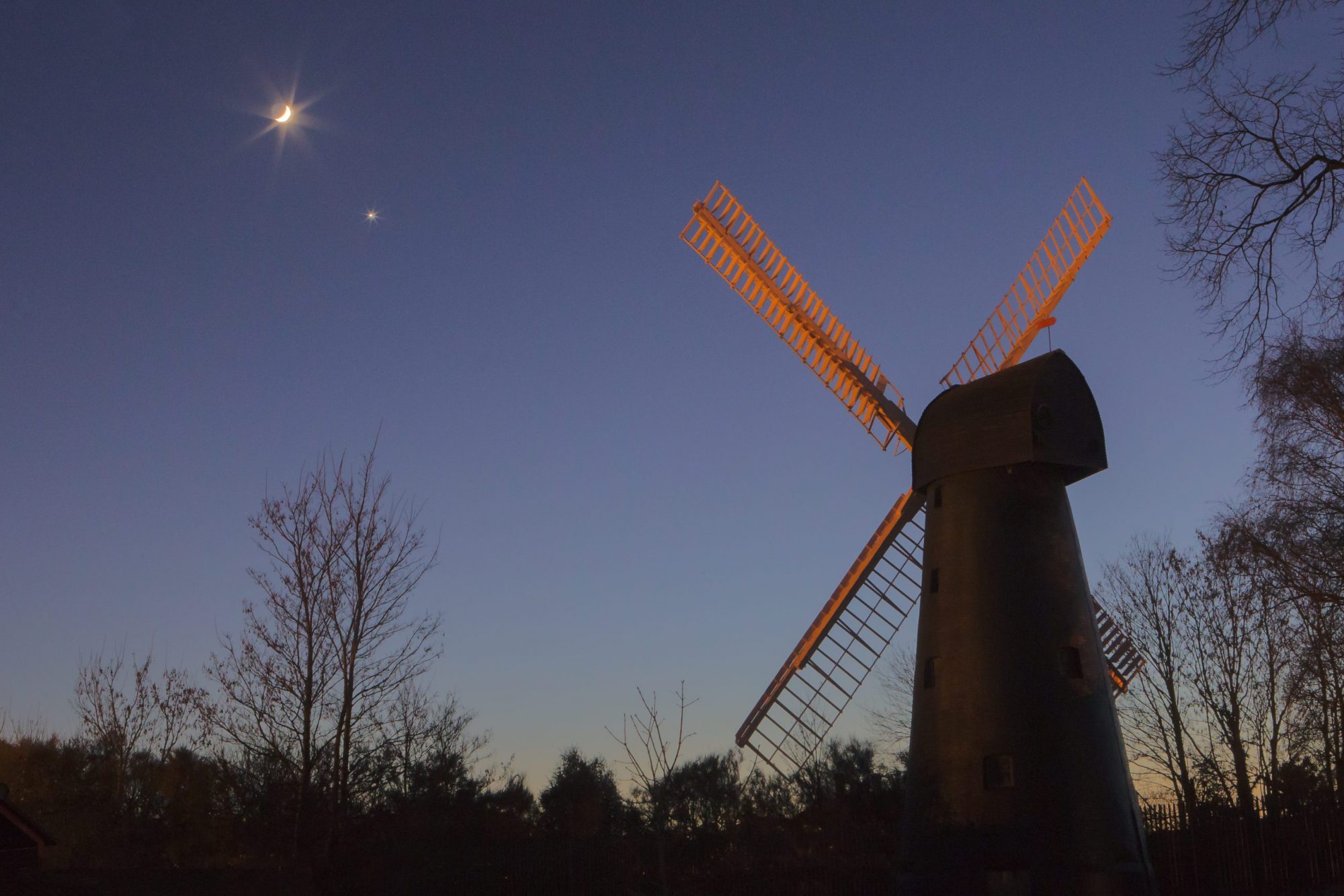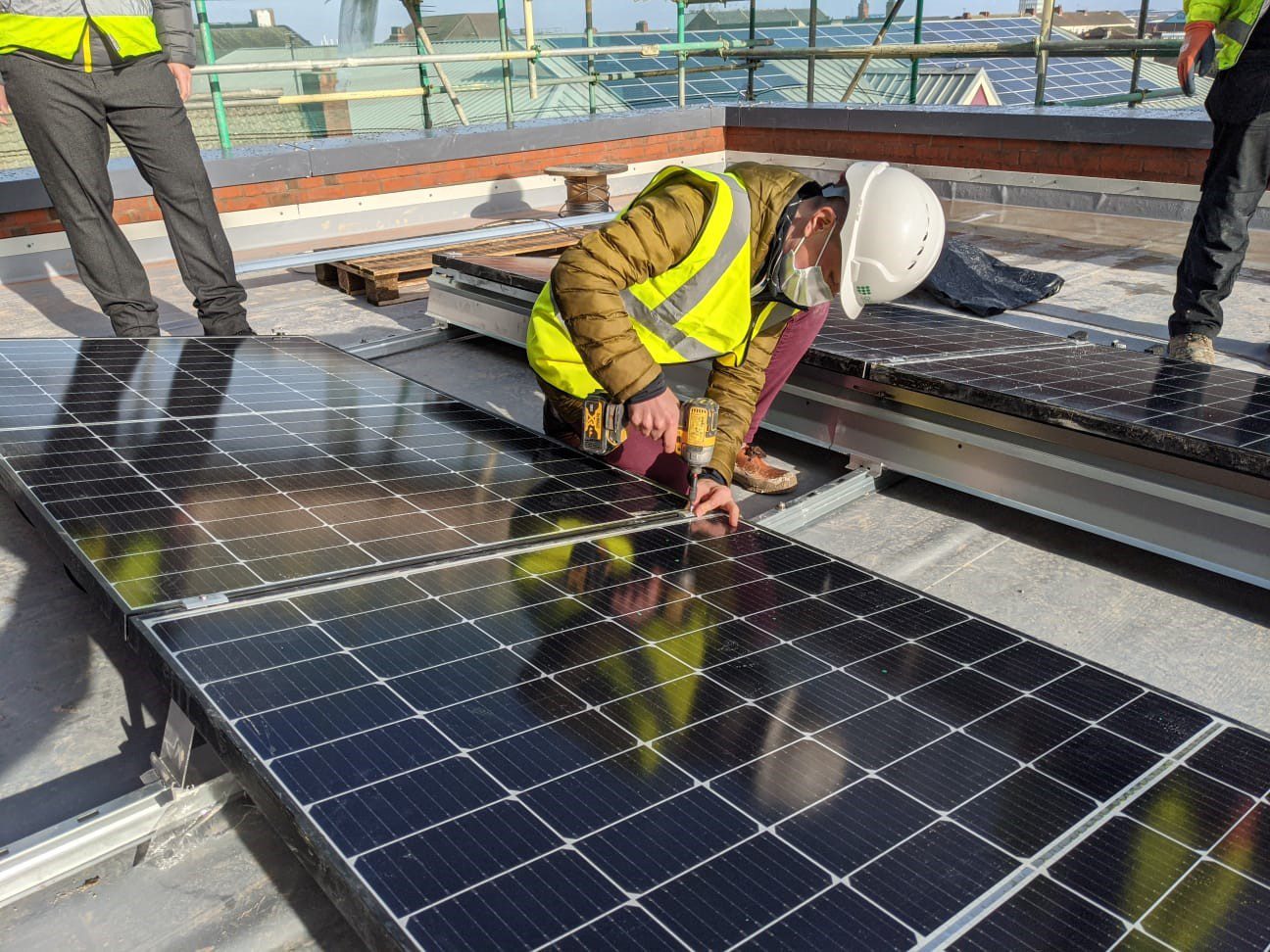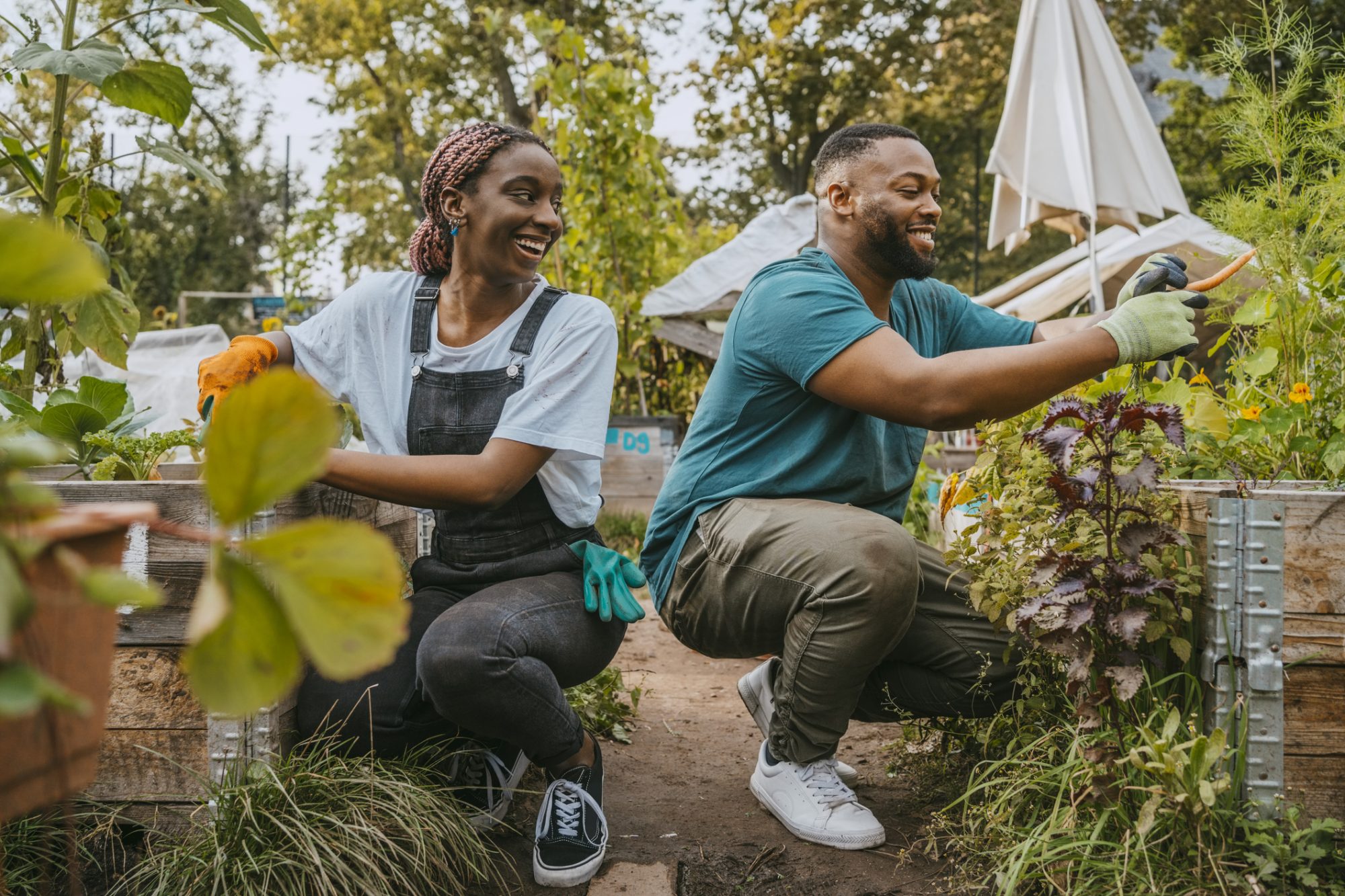Brixton in South London is known for many things – a diverse population, a lively night-time economy and day-time street market – but not many people are aware that its oldest local landmark is a windmill, and a working one at that.
No longer wind powered, everything else about the windmill is as it was over two hundred years ago when it opened; the stones used for grinding, the shafts and spindles and gears work in exactly the same way. Now it is volunteer millers who keep the flour flowing, ground from organic wheat grown not far away in Hertfordshire.
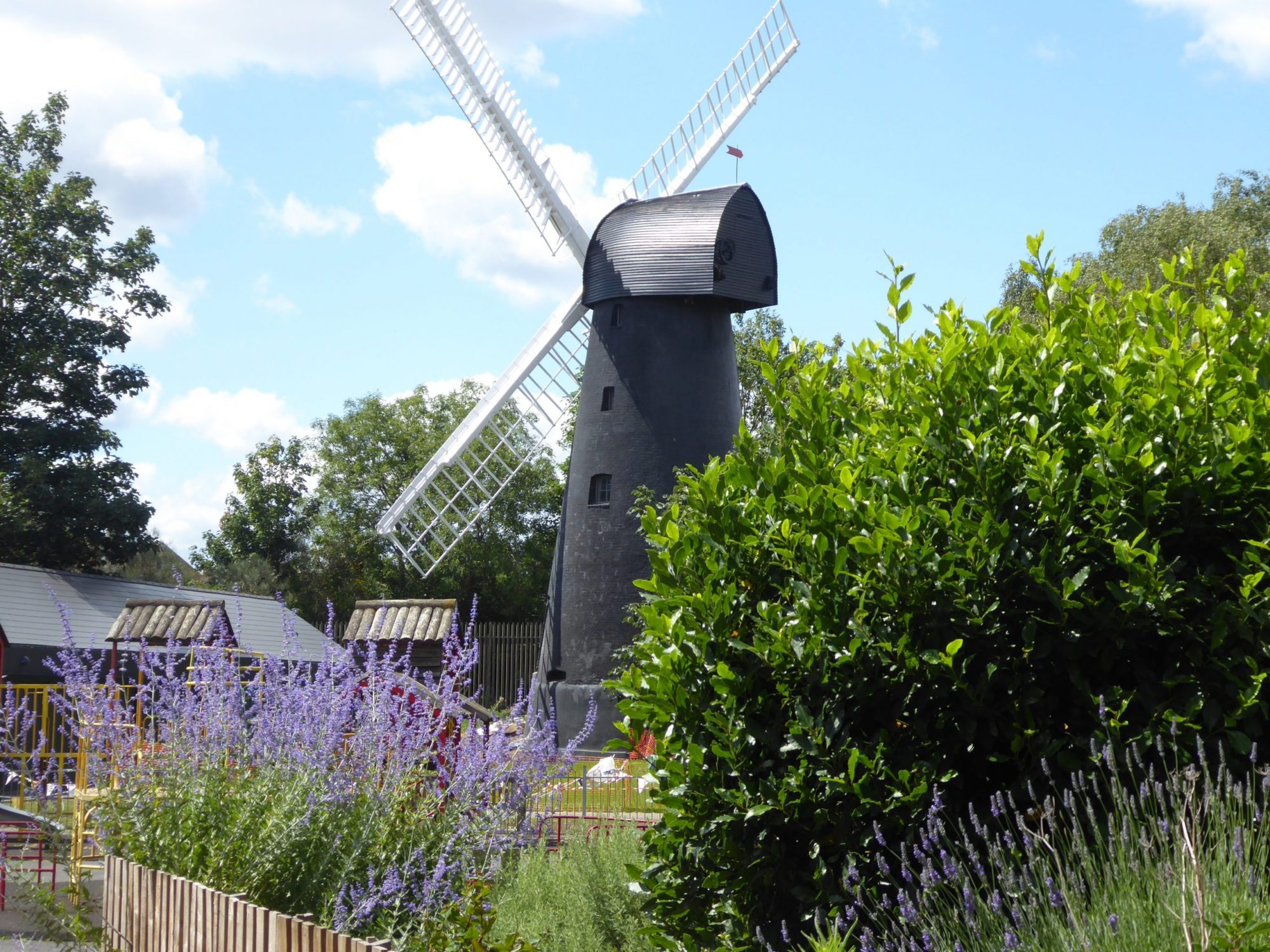
View from the herb garden. Photo: Nick Weedon
How did they do it?
In 2003 local residents formed the Friends of Windmill Gardens and started campaigning for this Grade II* listed building to be restored. It reopened in 2011 thanks to a National Lottery Heritage Fund grant. In 2014, the Friends starting grinding flour again with the help of volunteer millers.
Volunteers who also provide stewards on open days, as well as selling produce in local food markets, will soon have even more opportunities to enhance their skills, improve their employment prospects and just feel better about their place in the community. Later on in 2020, the brand new Brixton Windmill Centre opens thanks to funding from Lambeth Council and Power to Change, amongst others.
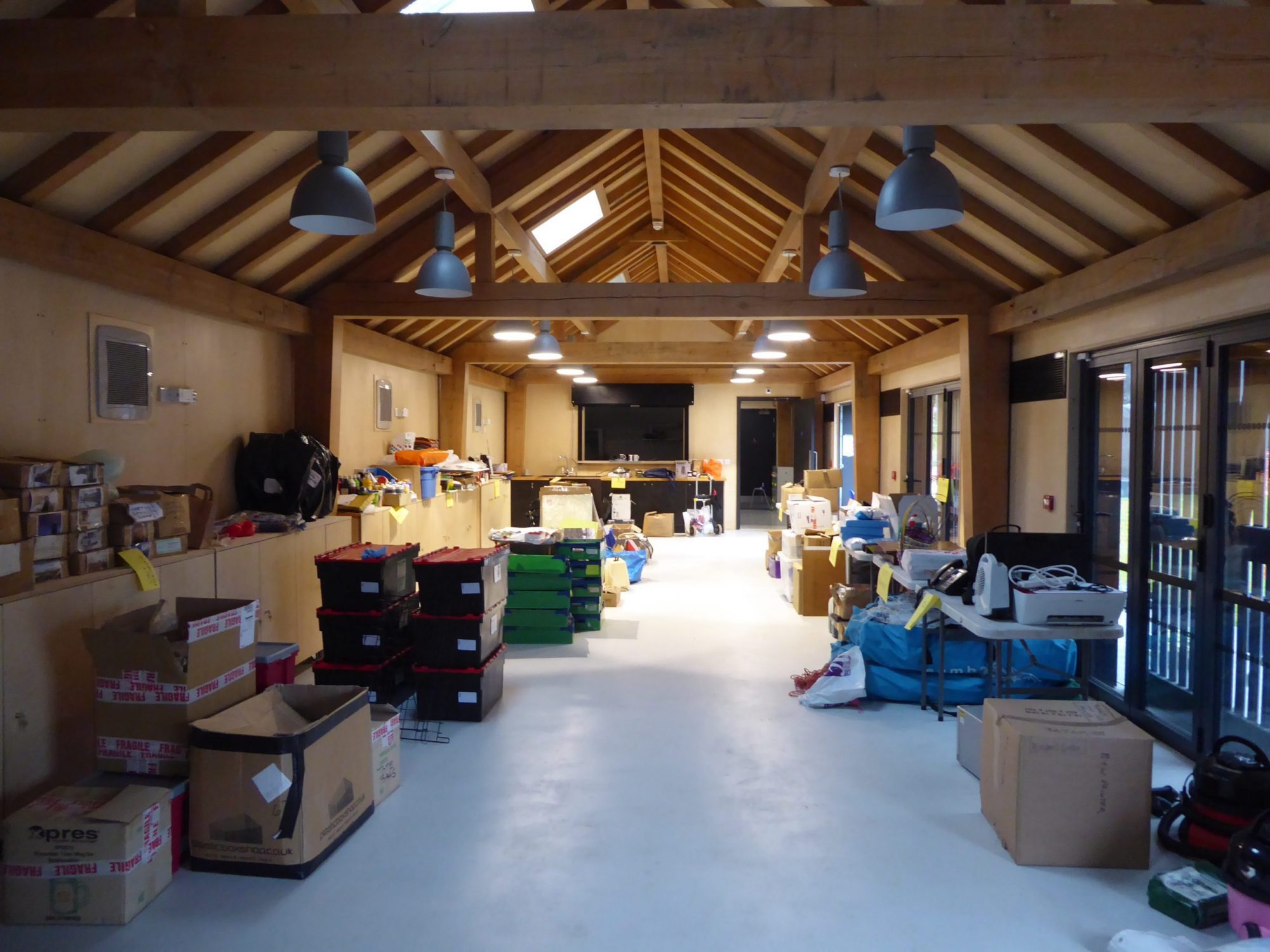
Brixton Windmill Centre. Photo: Nick Weedon
What is their social impact?
Operating under a lease to run and maintain the centre, the Friends of Windmill Gardens are looking for further volunteers to increase access for schools, support increased flour production and run spaces for use by the local community. This will expand the impact of the windmill on the community far beyond flour production and guided tours into the realms of education about the roots of where they live for local school children.

Brixton Windmill Parade and Festival. Photo: Owen Llewellyn
How is it community led?
Friends of Windmill Gardens also has a flourishing membership scheme that ensures this business stays accountable to its community. As well as getting their voices heard at two general meetings a year plus vote at an AGM, paid-up Friends can join the trustee board and so take forward the decisions of the membership about the future of the windmill and surrounding gardens. They can be justly proud that such a landmark is not only still standing but also thriving, bringing local people together to celebrate and enjoy this unique historic building and the open space around it.
